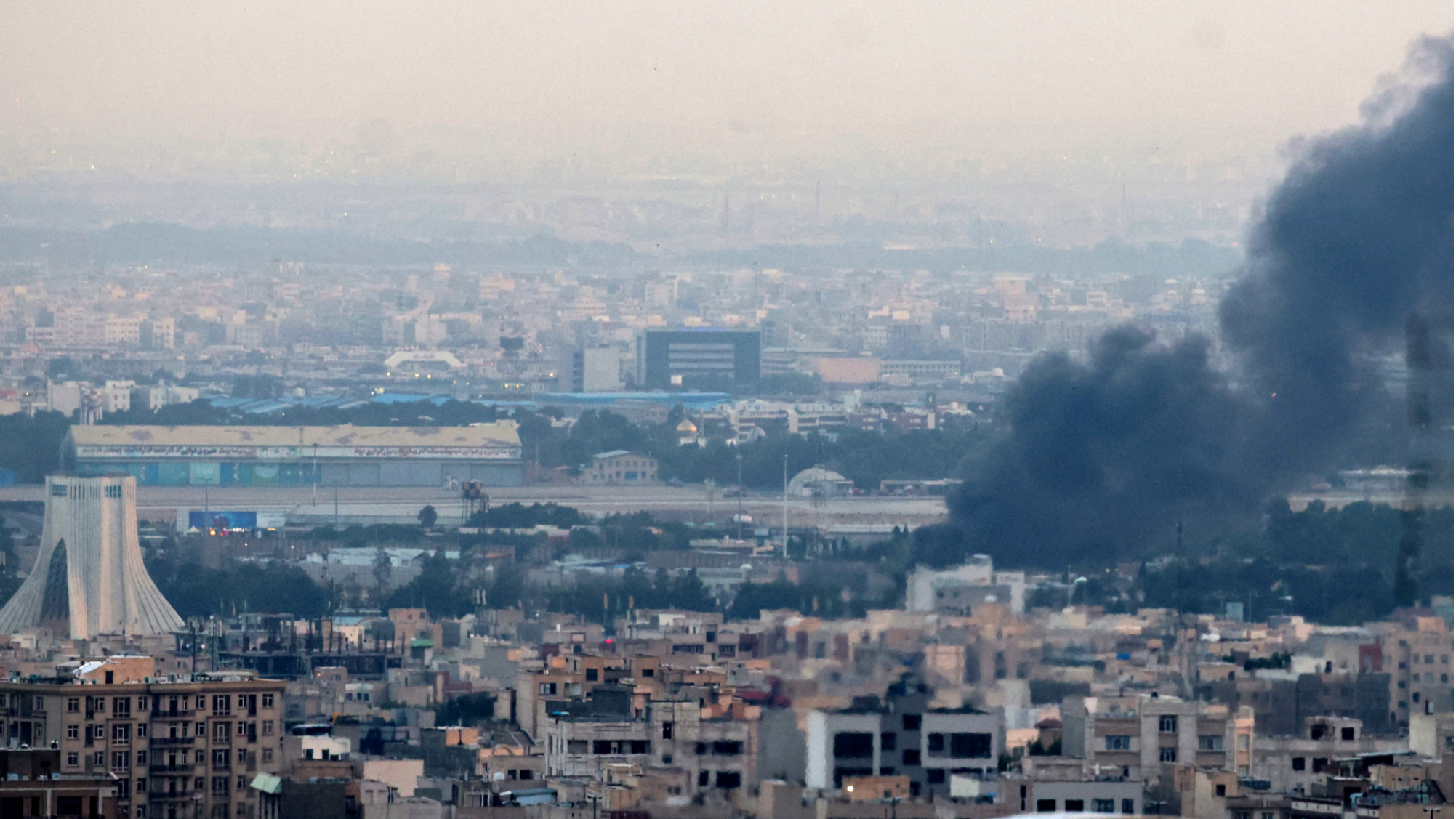
The Arab and Muslim countries, including the Gulf Cooperation Council (GCC) have denounced Israel’s pre-emptive strikes on Iran, urging de-escalation, nuclear disarmament, and a return to the negotiating table amid rising regional tensions. China welcomed their efforts for truce.
The foreign ministers of Egypt, Algeria, Bahrain, Brunei, Chad, the Comoros, Djibouti, Gambia, Iraq, Jordan, Kuwait, Libya, Mauritania, Oman, Pakistan, Qatar, Saudi Arabia, Somalia, Sudan, Türkiye and the United Arab Emirates issued a joint statement on Monday calling for an end to Israel's hostilities.
They stressed the need to respect the sovereignty and territorial integrity of states and the principles of good neighborliness, urging all parties to settle their disputes by peaceful means.
READ MORE: Iran launched new wave of attacks on Israel in response to Israeli airstrike
The ministers underscored the importance of de-escalation efforts that would lead to a ceasefire and a comprehensive truce, warning about the consequences of rapidly escalating tensions in the region.
They also noted the importance of creating a Middle East free of nuclear weapons and other weapons of mass destruction.
The Egyptian-initiated statement also called on all countries in the region to accede to the Treaty on the Non-Proliferation of Nuclear Weapons (NPT).
The NPT entered into force in 1970 to prevent the spread of nuclear weapons and weapons technology, and promote cooperation in the peaceful uses of nuclear energy.
The joint statement followed contact between Egyptian Foreign Minister Badr Abdelatty and his counterparts from different countries, according to Egypt’s Middle East News Agency.
China welcomes the joint statement issued by the 21 Arab and Muslim nations and commends their efforts to de-escalate the situation, said Chinese Foreign Ministry spokesman Guo Jiakun said on Tuesday.
The immediate priority is to achieve a ceasefire, take effective measures to prevent further escalation, avert broader regional instability and return to the path of political settlement through dialogue and negotiation -- a common consensus shared by the global community, he said.
And China stands ready to maintain communication with all parties and play a constructive role in promoting regional calm, Guo said.
Meanwhile, at the 48th extraordinary meeting of the GCC Ministerial Council on Monday, the bloc urged all parties to “exercise maximum restraint” and “spare the region and its people the dangers of war”.
The GCC comprises Bahrain, Kuwait, Oman, Qatar, Saudi Arabia, and the UAE.
The bloc demanded the United Nations Security Council (UNSC) and the international community “to assume their responsibilities towards bringing about an immediate end to this war”.
The GCC also called on the international community to continue US-Iranian negotiations on the Iranian nuclear issue, mediated by the Sultanate of Oman.
They underscored the importance of maintaining maritime security in the region and confronting activities that threaten regional and global security and stability.
These include targeting commercial vessels and threatening maritime shipping lanes, international trade, and oil facilities in the GCC countries.
Abdolreza Alami, director of the Asia West East Centre in Kuala Lumpur, Malaysia, said the joint statement by Arab and Muslim-majority countries marked an “unprecedented moment of unity” in defense of Iran against “Zionist aggression”.
“These nations recognize that today’s aggression against Iran could easily be tomorrow’s threat to them,” he told China Daily.
On June 17, the G7 leaders also reiterated their “commitment to peace and stability in the Middle East”.
The Western-majority bloc stopped short of condemning Israel for its pre-emptive strikes on Iran, reaffirming its backing for Tel Aviv.
“We reiterate our support for the security of Israel. We also affirm the importance of the protection of civilians,” the G7 statement read.
“Iran is the principal source of regional instability and terror. We have been consistently clear that Iran can never have a nuclear weapon,” it added.
“We urge that the resolution of the Iranian crisis leads to a broader de-escalation of hostilities in the Middle East, including a ceasefire in Gaza.
“We will remain vigilant to the implications for international energy markets and stand ready to coordinate, including with like-minded partners, to safeguard market stability,” it read.
Alami said the G7 statement reflects the deep-rooted double standards that have come to characterize the current global order.
Alami said Israel’s recent attack on Iran — when Iran was actively engaged in diplomatic negotiations over its nuclear program — is yet another example of how Tel Aviv, with full Western backing, has “trampled every moral and legal red line”.
“Rather than condemning Israel’s illegal actions, the G7 has chosen to blame and isolate the victim, Iran, simply for defending its sovereignty,” he said.
“This only serves to delegitimize institutions like the UN Security Council, IAEA, and G7 itself, which have become instruments of political manipulation rather than platforms for justice,” said Alami.
“The G7’s final statement is not just politically biased — it’s a moral failure, exposing the hollowness of international law in the hands of those who should be its defenders,” he added.
READ MORE: Israel reports 41 wounded, heavy damage in Iran's retaliatory attack
Alami said this attack on Iran — coming amid diplomatic engagement — echoes what happened with the Joint Comprehensive Plan of Action (JCPOA), a deal which Iran respected, but “was undermined by US withdrawal and Israeli sabotage”.
In 2015, Iran signed the JCPOA nuclear deal with the United Kingdom, China, France, Germany, Russia, and the US.
However, during the first Donald Trump administration, the US unilaterally withdrew from the JCPOA in 2018, renewing sanctions and prompting Iran to gradually reduce compliance with its nuclear commitments.
Contact the writer at jan@chinadailyapac.com
Cui Haipei from Dubai, UAE contributed to the story.


